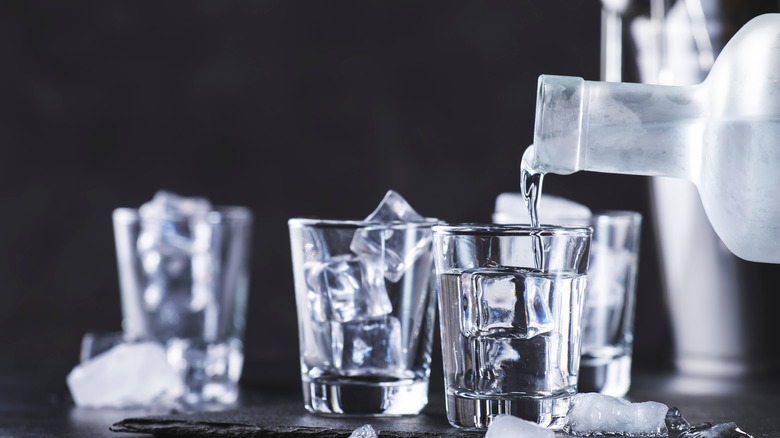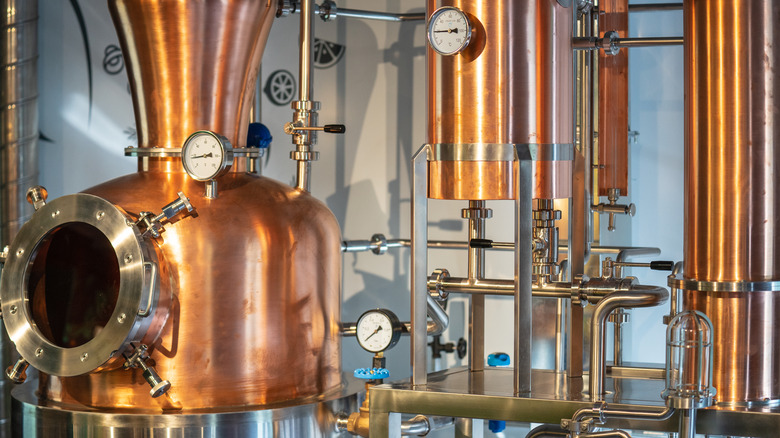The Reason Vodka Can Be Made From So Many Different Ingredients
It's impossible to overstate how much people love vodka. It ranks as the most popular liquor in America, according to a report from Penn State Extension, a position that it has held for decades. Its widespread appeal comes from the fact that vodka is a versatile base for cocktails thanks to its neutral flavor and aroma, which plays to the benefit of bartenders, as well as vodka manufacturers. It's thanks to this trait that vodka, despite its ubiquity, is actually difficult to define in specific terms.
According to Insider, while other liquors are defined by strict rules (for example, tequila must be made from agave plants), vodka can be made from any plant that is naturally rich in sugar such as fruit, wheat, corn, or potatoes. This is the only true requirement for fermentation — the chemical process by which microorganisms, such as the yeast used in vodka and beer, react with sugar to produce alcohol (via University of Texas Department of Nutritional Sciences).
While alcoholic beverages go through fermentation, the thing that makes vodka unique happens during the next stage of the production process.
Vodka has a neutral flavor and color
As Insider explains, after the plant material of choice is fermented, vodka must be distilled. This is another common process that nearly all alcoholic beverages go through, but vodka is far more distilled than the rest. Distillation purifies the fermented mixture by evaporating the water it contains, leaving concentrated ethanol behind, as Purdue University details. Insider further elaborates that vodka is typically distilled to 95% ABV (alcohol by volume), which is the same concentration as Everclear, per Live Science. However, the vodka is diluted with distilled water, typically down to 40% ABV.
According to Insider, it is this combination of intense distillation and subsequent dilution by water that gives vodka its clear color, neutral taste, and smell. That stands in stark contrast to other spirits, such as bourbon, which are not distilled as much, leading them to retain more of their ingredients' original flavors. It is also thanks to this purification that vodka causes less intense hangovers than dark spirits. The neutralizing powers of distillation and dilution leave no discernible trace of the drink's origin — whether that be potato, wheat, corn, or tropical fruit — making the exact source virtually inconsequential.

